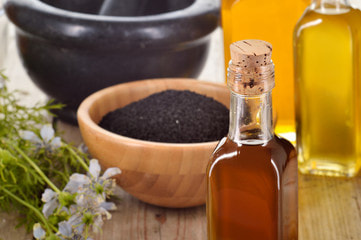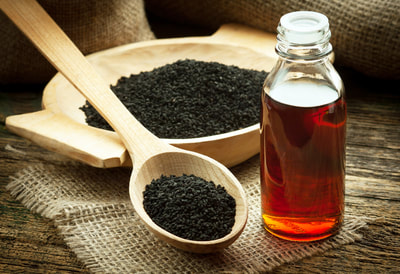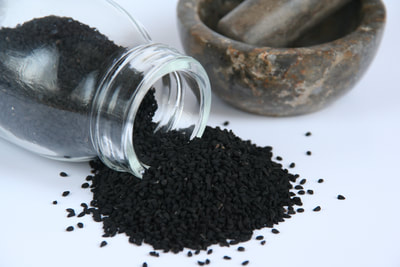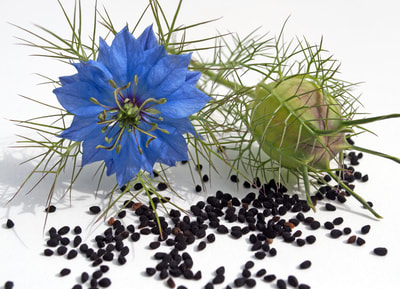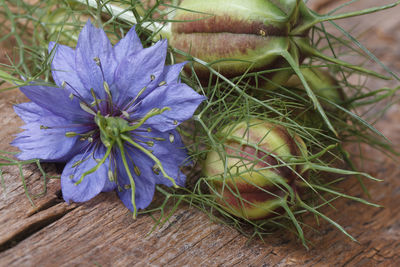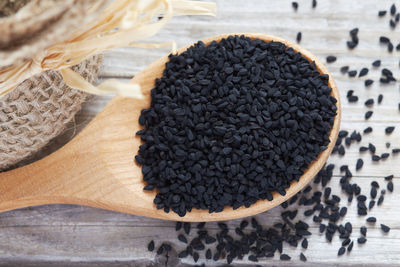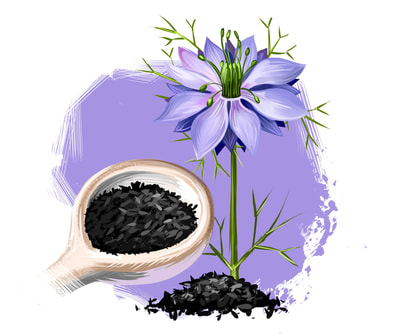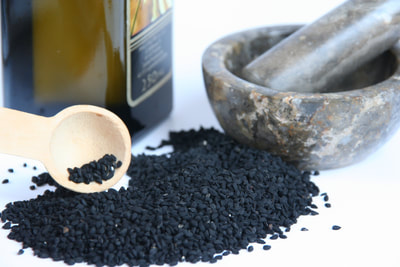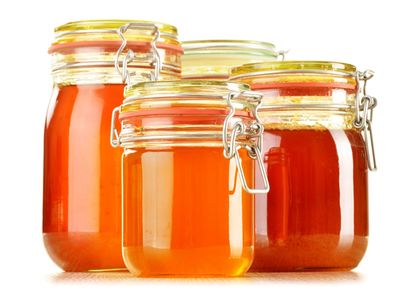- HOME - START HERE
- CONSULTATION SERVICES
- 911 EMERGENCY
- EBOOKS
- Store
- DOSAGES
- HOW TO TAKE
- ANTI-AGING
- CBD AND NIGELLA SATIVA
- RESEARCH SHOWS THAT CANCER RATES WILL RISE DRASTICALLY OVER THE COMING YEARS
- FIBRO CATEGORY
- HERPES CATEGORY
- HIV- Category
- Honey - Category
- Pets
- Top 20 Reasons to use Black Cumin Oil and Capsules
- STROKES CATEGORY
- WEIGHT LOSS CATEGORY
- ANSWER THE QUESTIONS
- Articles
- BLACK SEED OIL IS BETTER THAN TYLENOL FOR ARTHRITIS RELIEF
- Migraines - Headaches - 12 Remedies with Pictures
- My Protocol for Dementia Recovery
- PCOS and Nigella Sativa
- PRIVACY POLICY - GDPR COMPLIANT
- My Team
- About
- Healthy Articles
- Nigella Sativa Online Courses - Part 1
- Childhood Epilepsy
- Natural Diuretics
- Healing Effect on Sarcoidosis
- Nigella Sativa Respiratory Illness
- Cardiovascular Disease
- Depression and COVID19
- 12
- How to Use Nigella Sativa
- How Contagious is Leprosy
- Supporting Human Health - The Immunomodulator
- Nigella Sativa Cancer Ebook
- OK, I am a Muslim - Now What?
- Everything You Ever Wanted to Know About Black Seeds
- Islam Cancer Ebook
- DONATION
- Nigella sativa is an safe alternative Non-Hodgkin’s treatment option
- RESEARCH ON WHY YOU SHOULD HEAT NIGELLA SATIVA SEEDS
- Black Seed Cuisine Ebook
- IS THERE A CURE FOR LUPUS - NATURAL SOLUTIONS
- Black Seed Oil
- TURMERIC DETOX AND MORE
- MASTERS OF HEALING
- PAYMENT RECEIVED
- Non-clickable Page
- IRRITABLE BOWEL SYNDROME - NATURAL SOLUTIONS
- MY CANCER COLLECTION
- CONTACT
THE ROLE OF BLACK CUMIN SEED OIL AGAINST EPSTEIN BARR VIRUS
WRITTEN BY DR. NITA SHARMA DAS, PHD, ND, PHDHM, B PHARM. August 22, 2018
THIS ARTICLE IS COPYRIGHTED FOR NIGELLASATIVACENTER.COM. ALL RIGHTS RESERVED. THIS ARTICLE CONTAINS AFFILIATE LINKS I RECOMMEND.
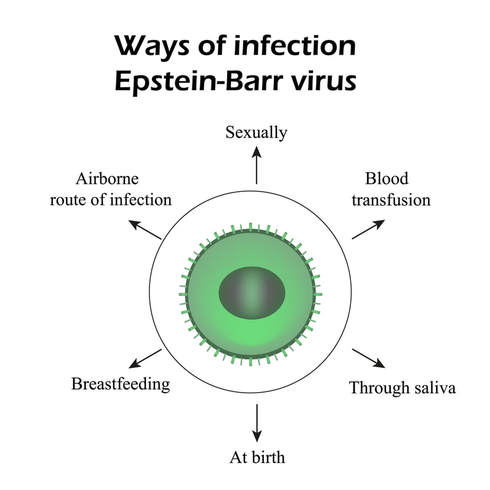
Epstein Barr Virus is responsible for mononucleosis (glandular fever) and also called by the name herpes 4 or human herpes.
The infectious agent can enter at any time of the life, but the children are more susceptible to it. At an initial stage, the infection is asymptomatic and non specific, but gradually multiple symptoms start prevailing with the spreading of the Epstein Barr virus in the host; which include fever, sore throat, fatigue, headache, splenomegaly (spleen enlargement), lymphadenopathy (lymph node aliments), hepatomegaly (liver enlargement), rash etc.
These symptoms are associated with acute infection and usually self-limiting.All the symptoms related to acute Epstein Barr Syndrome are mild and self-limiting, but the virus can stay life-long and can reactivate at any stage of life.
Mononucleosis is most common infection associated with Epstein Barr Viral infection and mainly develop in an adult age. However, Epstein Barr virus in the chronic state leads to impaired liver function, hemophagocytic syndrome, anemia, hypersensitivity to mosquito bites, thrombocytopenia,oral ulcers, lymphoma, interstitial pneumonia, hepatic failure, and coronary artery aneurysms as well. [1]
There is no specific treatment recommendation for Epstein Barr Syndrome. Natural medicine researchers enlisted several hundred herbs with the potentiality to act as antiviral agents.
Among them, black seed is one of the most promising herbal therapeutic agents that is effective against Epstein-Barr virus.
The infectious agent can enter at any time of the life, but the children are more susceptible to it. At an initial stage, the infection is asymptomatic and non specific, but gradually multiple symptoms start prevailing with the spreading of the Epstein Barr virus in the host; which include fever, sore throat, fatigue, headache, splenomegaly (spleen enlargement), lymphadenopathy (lymph node aliments), hepatomegaly (liver enlargement), rash etc.
These symptoms are associated with acute infection and usually self-limiting.All the symptoms related to acute Epstein Barr Syndrome are mild and self-limiting, but the virus can stay life-long and can reactivate at any stage of life.
Mononucleosis is most common infection associated with Epstein Barr Viral infection and mainly develop in an adult age. However, Epstein Barr virus in the chronic state leads to impaired liver function, hemophagocytic syndrome, anemia, hypersensitivity to mosquito bites, thrombocytopenia,oral ulcers, lymphoma, interstitial pneumonia, hepatic failure, and coronary artery aneurysms as well. [1]
There is no specific treatment recommendation for Epstein Barr Syndrome. Natural medicine researchers enlisted several hundred herbs with the potentiality to act as antiviral agents.
Among them, black seed is one of the most promising herbal therapeutic agents that is effective against Epstein-Barr virus.
Transmission of Epstein Barr Virus infection
Like other viral infections, Epstein-Barr virus can easily spread and can quickly cause infection.
Like other viral infections, Epstein-Barr virus can easily spread and can quickly cause infection.
- Body fluid is a common media to transport the Epstein-Barr virus from affected individual to other. The salivary fluid transmits the infection during kissing or sharing of food.
- Blood and seminal fluid get transmitted from affected individual to healthy individual during organ transplantations and/ or intercourse.
- The non-living things which are in contact with the infected individuals like clothes, toothbrush, utensils can be contaminated and transmit the Epstein-Barr virus to others during handling this objects. The Epstein-Barr virus can stay alive for a prolonged period in the moist area.
- However, there is no history of Epstein-Barr virus transmission during pregnancy or fetal damage. The virus cannot cross the placental barrier, therefore, even infection in pregnant women cannot be transmitted to the fetus. [2]
Epstein Barr Virus Relapse
The perilous aspect of this virus is its ability to relapse the infection after a considerable duration of time. The Epstein-Barr virus invades the susceptible individual and enters into the body.
After a certain period of time of reaching the body system, the virus becomes inactive or transient a latent phase. During this period they act as a carrier and spread the infection to other susceptible individuals.
However, the infectious symptoms are noticeable after completion of the incubation period in favorable body condition. This infectious nature of Epstein-Barr virus continues even after a protracted time interval. [1]
The tendency to relapsing Epstein-Barr virus infection is a very common incidence. Clinical investigation reports stated that latency state of the Epstein-Barr Virus is mostly continued within epithelium tissue of the salivary gland,epithelial cells of the oropharyngeal site and also in B-lymphocytes.Reactivation of the Epstein-Barr virus leads to relapse this virus-related illness. [3]
The frequent relapse condition often causes chronic Epstein Barr Syndrome, and in rare cases, the syndrome turns to Chronic active Epstein-Barr virus (CAEBV) disease.
The outcome of the progressive nature of CAEBV causes a life-threatening condition by aggravating the symptoms.
The symptoms are aggravated because the Epstein-Barr viral content in the blood including DNA, RNA and protein level is elevated. Medical research report illustrated that Epstein-Barr virus may interact with the immune system by reacting with T cells, B cells, and natural killer cells and causes distorted genetic mutation.
CAEBV often causes serious life-threatening complications like organ failure, malignancy and a certain type of immunodeficiency (Hemophagocytic Lymphohistiocytosis). [4]
It is imperative to prevent chronic relapse of Epstein-Barr viral infection.However, there is no vaccination available to prevent Epstein Barr virus. [5]
The perilous aspect of this virus is its ability to relapse the infection after a considerable duration of time. The Epstein-Barr virus invades the susceptible individual and enters into the body.
After a certain period of time of reaching the body system, the virus becomes inactive or transient a latent phase. During this period they act as a carrier and spread the infection to other susceptible individuals.
However, the infectious symptoms are noticeable after completion of the incubation period in favorable body condition. This infectious nature of Epstein-Barr virus continues even after a protracted time interval. [1]
The tendency to relapsing Epstein-Barr virus infection is a very common incidence. Clinical investigation reports stated that latency state of the Epstein-Barr Virus is mostly continued within epithelium tissue of the salivary gland,epithelial cells of the oropharyngeal site and also in B-lymphocytes.Reactivation of the Epstein-Barr virus leads to relapse this virus-related illness. [3]
The frequent relapse condition often causes chronic Epstein Barr Syndrome, and in rare cases, the syndrome turns to Chronic active Epstein-Barr virus (CAEBV) disease.
The outcome of the progressive nature of CAEBV causes a life-threatening condition by aggravating the symptoms.
The symptoms are aggravated because the Epstein-Barr viral content in the blood including DNA, RNA and protein level is elevated. Medical research report illustrated that Epstein-Barr virus may interact with the immune system by reacting with T cells, B cells, and natural killer cells and causes distorted genetic mutation.
CAEBV often causes serious life-threatening complications like organ failure, malignancy and a certain type of immunodeficiency (Hemophagocytic Lymphohistiocytosis). [4]
It is imperative to prevent chronic relapse of Epstein-Barr viral infection.However, there is no vaccination available to prevent Epstein Barr virus. [5]
Generalized treatment approach to control Epstein Barr Viral infection
In Epstein Barr infection, it is always recommended to have adequate rest. Maintaining adequate hydration by taking sufficient fluid and administration of analgesic medication to control pains are common advises reducing the symptoms ofEpstein-Barr Syndrome.
Acute Epstein Barr Syndrome related severe inflammatory conditions in throat or spleen may require corticosteroid medication to treat the condition.
Antiviral treatment, immunosuppressive therapy, chemotherapeutic regimen are prescribed to control the chronic active form of Epstein Barr Viral infection.
In most of the cases, these treatments are ineffective to control the infection and increases the incidence of adverse effects associated with these treatment options by compromising the immune system and damaging overall cellular structure due to their unspecific cytotoxic property. [1]
In Epstein Barr infection, it is always recommended to have adequate rest. Maintaining adequate hydration by taking sufficient fluid and administration of analgesic medication to control pains are common advises reducing the symptoms ofEpstein-Barr Syndrome.
Acute Epstein Barr Syndrome related severe inflammatory conditions in throat or spleen may require corticosteroid medication to treat the condition.
Antiviral treatment, immunosuppressive therapy, chemotherapeutic regimen are prescribed to control the chronic active form of Epstein Barr Viral infection.
In most of the cases, these treatments are ineffective to control the infection and increases the incidence of adverse effects associated with these treatment options by compromising the immune system and damaging overall cellular structure due to their unspecific cytotoxic property. [1]
Role of Black seed against Epstein Barr virus
It is well established that oil extracted from black seed has a potent antiviral effect which can combat viral pathogenesis and prevent infection by strengthening the immune system of susceptible individuals. [6]
Thymoquinone is one of the active phytochemical of black seed oil. The result of an in-vitro study reported that the thymoquinone shows the selective inhibitory effect on Epstein–Barr virus-infected B cell lines.
Black seed oil has the potency to suppress the altered genetic mutation by inhibiting the RNA expression of EBNA1, EBNA2, and LMP1 genes. The therapeutic action of thymoquinone enables suppression of EBNA2 and impart the potency to black seed to act against Epstein–Barr virus-infected cell.
The researchers conclude that thymoquinone present in black seed oil has efficiently restrained the growth of Epstein–Barr virus-infected B cell. [7]
T-cell mediated immune system is compromised in Epstein–Barr virus infection. [8] Black seed can regulate the T cell-mediated immune responses and augment natural killer cell-mediated immune responses, which may provide protection from –Barr virus infection.
Black seed stimulates immune cells and increases the production of interferon which imparts protective action on cells from virus-induced cellular destruction. [9]
It is well established that oil extracted from black seed has a potent antiviral effect which can combat viral pathogenesis and prevent infection by strengthening the immune system of susceptible individuals. [6]
Thymoquinone is one of the active phytochemical of black seed oil. The result of an in-vitro study reported that the thymoquinone shows the selective inhibitory effect on Epstein–Barr virus-infected B cell lines.
Black seed oil has the potency to suppress the altered genetic mutation by inhibiting the RNA expression of EBNA1, EBNA2, and LMP1 genes. The therapeutic action of thymoquinone enables suppression of EBNA2 and impart the potency to black seed to act against Epstein–Barr virus-infected cell.
The researchers conclude that thymoquinone present in black seed oil has efficiently restrained the growth of Epstein–Barr virus-infected B cell. [7]
T-cell mediated immune system is compromised in Epstein–Barr virus infection. [8] Black seed can regulate the T cell-mediated immune responses and augment natural killer cell-mediated immune responses, which may provide protection from –Barr virus infection.
Black seed stimulates immune cells and increases the production of interferon which imparts protective action on cells from virus-induced cellular destruction. [9]
Advantages of Black seed oil therapy in Epstein–Barr virus management
- The thymoquinone is selectively cytotoxic on EBV-infected B cell line, and do not affect EBV negative B cell line and other associated human cellular structures. This is the advantage of black seed oil over other cytotoxic drugs. Research studies showed thymoquinone has very low toxicity on the overall circulatory system, blood mononuclear cells, and periodontal ligament fibroblasts. Therefore, the scope of adverse effect is very minimal. [7]
- Interferon beta -1a therapy has an antiviral property with immunomodulatory action. It is often recommended to treat Epstein–Barr virus infection and its associated complications including multiple sclerosis. [10] However, most of the patients have flu-like symptoms, including fever, body ache after administering Interferon beta -1a therapy. [11] Whereas, several Epstein–Barr virus-infected individuals reported that black seed oil intake for prolong duration reduces the side effect intensity of Interferon beta -1a therapy. Some of the Epstein–Barr virus affected individuals also reported in their testimony that black seed oil intake reduces the fever attacks and joint stiffness associated with Interferon beta -1a therapy. [12]
- Fibromyalgia is one of the most common associated condition with Epstein–Barr virus infection. Black seed oil helps to reduce the systemic inflammation and chronic pain condition associated with fibromyalgia. [13] Gastric complication is another common problem arises in Epstein–Barr virus-infected individuals. Epstein–Barr virus increases the gastric ulceration by increasing acid secretion, enhance the activity of inflammatory mediators of gastric mucosa, decrease gastric motility and reduce gastric circulation. The outcome of these negative influence causes ulcer formation and in severe cases, which can turns to cancer development. Researchers found that black seed oil is a rich source of α-linolenic acid and γ-linolenic acid. Both of these active constituents reduce gastric secretion and prevent ulcer formation due to their antisecretory and anti-ulcerogenic properties. The potent antioxidant property of black seed promotes cytoprotective action and can accelerate healing of gastric lesions and thus it prevents gastric and peptic ulceration. In addition, black seed also enhances gastric microcirculation, which also assist in ulcer healing. The antioxidant, antiperoxidative and anti-histaminic property of black seed are mainly beneficial for protecting, healing and repairing black seed. [14]
- Epstein–Barr virus increase the risk of malignancy by promoting cancer cell development, growth and proliferation. Black seed able to uphold apoptosis and prevent DNA damage by regulating essential protein expression. [14]
- Antimicrobial property and immunomodulatory effect of black seed oil has several therapeutic benefits in treatment of Epstein–Barr virus and its complication. [14]
- Epstein–Barr virus infection and inflammation is coexisting and the thymoquinone present in black seed oil is a potent anti-inflammatory agent, which may treat several inflammatory condition associated with Epstein–Barr virus infection. [8]
Dietary recommendation
A sufficient amount of black seed is required to be consumed to get optimum therapeutic benefit. Black seed has a specific aroma, which is often used as a spice in preparing different foods. Therefore it is a better option to incorporate this herb in the diet.
Mixing black seed oil with honey provides a very potent anti-malignant effect, which can reduce the risk of chronic Epstein–Barr virus infection-related malignancy. [15]
Capsules of black seed oil are also available in the market and the research studies showed that 500mg black seed oil capsule can reduce inflammation, and joint stiffness symptoms.
The patients infected with Epstein–Barr virus can also consider few special diets which can help to fight the infection. The diet recommendations are mostly focused on the symptoms of the infection rather than the infection as a whole.
The dehydration, fever, and pain can be reduced by sufficient amount of rehydration with water, taking herbal teas and fresh fruit juices.
The vegetable juices and broths can also help to recover the taste during then. The symptoms of fatigue are very common for acute infection which reduces the immunity power and therefore animal proteins like fish, chicken, red meat and eggs can be taken.
For the vegans, whey powder, tofu, and legumes can act as immunity boosters in such cases. The inclusion of ginger, turmeric; and essential fats like nuts and avocados, can act as anti-inflammatory agents in diets for patients infected with Epstein–Barr virus. Cold pressed oils, cayenne pepper and edible seeds can also be beneficial in such conditions.[16]
A sufficient amount of black seed is required to be consumed to get optimum therapeutic benefit. Black seed has a specific aroma, which is often used as a spice in preparing different foods. Therefore it is a better option to incorporate this herb in the diet.
Mixing black seed oil with honey provides a very potent anti-malignant effect, which can reduce the risk of chronic Epstein–Barr virus infection-related malignancy. [15]
Capsules of black seed oil are also available in the market and the research studies showed that 500mg black seed oil capsule can reduce inflammation, and joint stiffness symptoms.
The patients infected with Epstein–Barr virus can also consider few special diets which can help to fight the infection. The diet recommendations are mostly focused on the symptoms of the infection rather than the infection as a whole.
The dehydration, fever, and pain can be reduced by sufficient amount of rehydration with water, taking herbal teas and fresh fruit juices.
The vegetable juices and broths can also help to recover the taste during then. The symptoms of fatigue are very common for acute infection which reduces the immunity power and therefore animal proteins like fish, chicken, red meat and eggs can be taken.
For the vegans, whey powder, tofu, and legumes can act as immunity boosters in such cases. The inclusion of ginger, turmeric; and essential fats like nuts and avocados, can act as anti-inflammatory agents in diets for patients infected with Epstein–Barr virus. Cold pressed oils, cayenne pepper and edible seeds can also be beneficial in such conditions.[16]
General Precautionary Measures
- Any kind of contact sports during the infection is restricted, because the enlargement of the spleen condition may worse by performing such activities.
- Avoid to kiss or share foods and drinks with Epstein-Barr virus-infected individuals.
- Do not share personal usable things like cloth, toothbrush with others.
- Alcohol, caffeine and junk foods can exacerbate the condition. [16]
- Keep hydrated by drinking sufficient fluid to detoxify the body.
- Take adequate rest to maintain the energy level. [17]
Which Black Seed Oil Do I Use?
I highly recommend this oil. I am so positive you will love my favorite oil too.
I highly recommend this oil. I am so positive you will love my favorite oil too.
REFERENCES
- Jeffrey I. Cohen; Optimal Treatment for Chronic Active Epstein-Barr Virus Disease; Pediatr Transplant. Author manuscript; available in PMC 2010 Jun 1; Published in final edited form as: Pediatr Transplant. 2009 Jun; 13(4): 393–396. doi: 10.1111/j.1399-3046.2008.01095.x; https://www.ncbi.nlm.nih.gov/pmc/articles/PMC2776035/
- John P. Cunha, (2016); Epstein-Barr Virus Infection; http://www.emedicinehealth.com/epstein-barr_virus_infection/page5_em.htm
- Simon MW. Manifestations of relapsing Epstein-Barr virus illness. J Ky Med Assoc. 1997 Jun;95(6):240-3. https://www.ncbi.nlm.nih.gov/pubmed/9198354
- Fujiwara S, Kimura H, Imadome K, Arai A, Kodama E, Morio T, Shimizu N, Wakiguchi H. Current research on chronic active Epstein-Barr virus infection in Japan. Pediatr Int. 2014 Apr;56(2):159-66. doi: 10.1111/ped.12314. https://www.ncbi.nlm.nih.gov/pubmed/24528553
- Jeffrey I. Cohen, Elaine S. Jaffe, Janet K. Dale, Stefania Pittaluga, Helen E. Heslop, Cliona M. Rooney, Stephen Gottschalk, Catherine M. Bollard, V. Koneti Rao, Adriana Marques, Peter D. Burbelo, Siu-Ping Turk, Rachael Fulton, Alan S. Wayne, Richard F. Little, Mitchell S. Cairo, Nader K. El-Mallawany, Daniel Fowler, Claude Sportes, Michael R. Bishop, Wyndham Wilson, Stephen E. Straus; Characterization and treatment of chronic active Epstein-Barr virus disease: a 28-year experience in the United States; Blood. 2011 Jun 2; 117(22): 5835–5849. Prepublished online 2011 Mar 31. doi: 10.1182/blood-2010-11-316745; https://www.ncbi.nlm.nih.gov/pmc/articles/PMC3112034/
- Sabah A.A. Jassim, M. A. Naji. Novel antiviral agents: a medicinal plant perspective. Journal of Applied Microbiology. Volume 95, Issue 3, September 2003 , Pages 412–427. DOI: 10.1046/j.1365-2672.2003.02026.x. http://onlinelibrary.wiley.com/doi/10.1046/j.1365-2672.2003.02026.x/full
- Malek A. Zihlif, Ismail S. Mahmoud, , Majd T. Ghanim, Manar S. Zreikat, Nasr Alrabadi, Amer Imraish, Fadwa Odeh, Manal A. Abbas, Said I. Ismail. Thymoquinone Efficiently Inhibits the Survival of EBV-Infected B Cells and Alters EBV Gene Expression. First Published October 21, 2012 . http://journals.sagepub.com/doi/abs/10.1177/1534735412458827
- A. B. Rickinson, D. J. Moss, L. E. Wallace, M. Rowe, I. S. Misko, M. A. Epstein and J. H. Pope. Long-Term T-Cell-mediated Immunity to Epstein-Barr Virus. Cancer Research. November 1981
Volume 41, Issue 11 Part 1. http://cancerres.aacrjournals.org/content/41/11_Part_1/4216.long - Salem ML, Immunomodulatory and therapeutic properties of the Nigella sativa L. seed. Int Immunopharmacol. 2005 Dec;5(13-14):1749-70. Epub 2005 Jul 1. https://www.ncbi.nlm.nih.gov/pubmed/16275613
- M. Garcia-Montojo, V. De Las Heras, M. Dominguez-Mozo, M. Bartolome, M. A. Garcia-Martinez, R. Arroyo and R. Alvarez-Lafuente. Human herpesvirus 6 and effectiveness of interferon beta 1b in multiple sclerosis patients. European Journal of Neurology 2011, 18: 1027–1035 doi:10.1111/j.1468-1331.2011.03410.x. https://www.ean.org/fileadmin/user_upload/CME_articles/CME_article_2011_August.pdf
- interferon beta-1a. https://www.medicinenet.com/interferon_beta-1a_rebif/article.htm#what_is_interferon_beta-1a_rebif,_and_how_does_it_work_(mechanism_of_action)?
- Thymoquinone from black seed oil fights ebv (in vitro). http://www.thisisms.com/forum/general-discussion-f1/topic22953.html
- Nigella Sativa, CBD and More: Solutions for Fibromyalgia, https://www.nigella--sativa.com/nigella-fibro.html
- Shahida A.Khan, Aziz M.Khan, Sajjad Karim Mohammad, Amjad Kamal Ghazi, A.Damanhouri, Zeenat Mirza. Panacea seed “Nigella”: A review focusing on regenerative effects for gastric ailments. Saudi Journal of Biological Sciences. Volume 23, Issue 4, July 2016, Pages 542-553. https://doi.org/10.1016/j.sjbs.2014.10.001. https://www.sciencedirect.com/science/article/pii/S1319562X14001302
- Black seed & honey – a natural cure. Cancer is gone! http://healthywithhoney.com/black-seed-honey-a-natural-cure-cancer-is-gone/
- BONNIE SINGLETON. Special Diet for Epstein-Barr. https://www.livestrong.com/article/308645-special-diet-for-epstein-barr/
- Epstein-Barr Virus and Infectious Mononucleosis; Centers For Disease Control & Prevention; https://www.cdc.gov/epstein-barr/about-ebv.html
ALSO READ MY SUGGESTIONS
|
COME JOIN MY MEMBERSHIP GROUP - DO YOU MISS ME? THE COST IS $9.95 PER MONTH. LEARN THE DEEP SECRETS OF BEING WELL.
PAYMENT LINK HERE |
STORE TESTIMONY CONTACT EBOOKS ABOUT PAGE PRIVATE POLICYAmazon Affiliate Disclosure
https://www.nigellasativacenter.com is a participant in the Amazon Services LLC Associates Program, an affiliate advertising program designed to provide a means for website owners to earn advertising fees by advertising and linking to amazon(.com, .co.uk, .ca etc) and any other website that may be affiliated with Amazon Service LLC Associates Program. “Amazon and the Amazon logo are trademarks of Amazon.com, Inc. or its affiliates.” Please note I am also an affiliate for Mountain Rose Herbs, , Shareasale and More. Please see our full disclosure here: Disclaimer: The information on this page and on this website has not been evaluated by the FDA. We do not diagnose, treat, cure or prevent illness or disease - instead, we try to help people learn how to do so themselves. Anyone who believes they have a serious medical condition or health issue should seek diagnoses from a qualified medical professional before making any decisions on how to best address their health. Furthermore, anyone contemplating using any products or information on this website must accept such use as experimental and voluntary. No claims are made regarding the therapeutic use of the products or information on this website and all products featured or sold on this website must be considered nutritional supplements only. -
Copyright Protected - Nigella Sativa.com - 2022-2025 - All Rights Reserved - Any infringe on our copyright will be prosecuted to the fullest extent of the law.
|
OWNER: SAMANTHA DAVIS
WEBSITE: BASED ON EVIDENCE ADDRESS: PO BOX 437, ZARGA, JORDAN 13110 PHONE: +962-53923471 HOURS: 5PM - 12AM - NY;TIME EMAIL: naturalliving [email protected] CONSULTATION FEES 1 STOP CENTER IS BASED ON ALL MODALITIES OF HEALING, NOT JUST NIGELLA SATIVA |
- HOME - START HERE
- CONSULTATION SERVICES
- 911 EMERGENCY
- EBOOKS
- Store
- DOSAGES
- HOW TO TAKE
- ANTI-AGING
- CBD AND NIGELLA SATIVA
- RESEARCH SHOWS THAT CANCER RATES WILL RISE DRASTICALLY OVER THE COMING YEARS
- FIBRO CATEGORY
- HERPES CATEGORY
- HIV- Category
- Honey - Category
- Pets
- Top 20 Reasons to use Black Cumin Oil and Capsules
- STROKES CATEGORY
- WEIGHT LOSS CATEGORY
- ANSWER THE QUESTIONS
- Articles
- BLACK SEED OIL IS BETTER THAN TYLENOL FOR ARTHRITIS RELIEF
- Migraines - Headaches - 12 Remedies with Pictures
- My Protocol for Dementia Recovery
- PCOS and Nigella Sativa
- PRIVACY POLICY - GDPR COMPLIANT
- My Team
- About
- Healthy Articles
- Nigella Sativa Online Courses - Part 1
- Childhood Epilepsy
- Natural Diuretics
- Healing Effect on Sarcoidosis
- Nigella Sativa Respiratory Illness
- Cardiovascular Disease
- Depression and COVID19
- 12
- How to Use Nigella Sativa
- How Contagious is Leprosy
- Supporting Human Health - The Immunomodulator
- Nigella Sativa Cancer Ebook
- OK, I am a Muslim - Now What?
- Everything You Ever Wanted to Know About Black Seeds
- Islam Cancer Ebook
- DONATION
- Nigella sativa is an safe alternative Non-Hodgkin’s treatment option
- RESEARCH ON WHY YOU SHOULD HEAT NIGELLA SATIVA SEEDS
- Black Seed Cuisine Ebook
- IS THERE A CURE FOR LUPUS - NATURAL SOLUTIONS
- Black Seed Oil
- TURMERIC DETOX AND MORE
- MASTERS OF HEALING
- PAYMENT RECEIVED
- Non-clickable Page
- IRRITABLE BOWEL SYNDROME - NATURAL SOLUTIONS
- MY CANCER COLLECTION
- CONTACT

